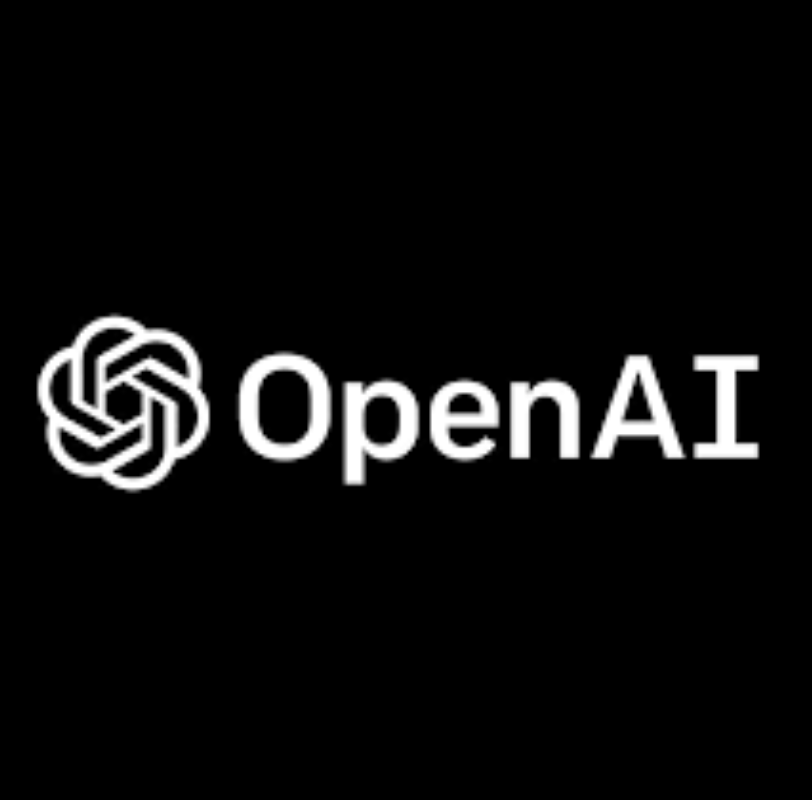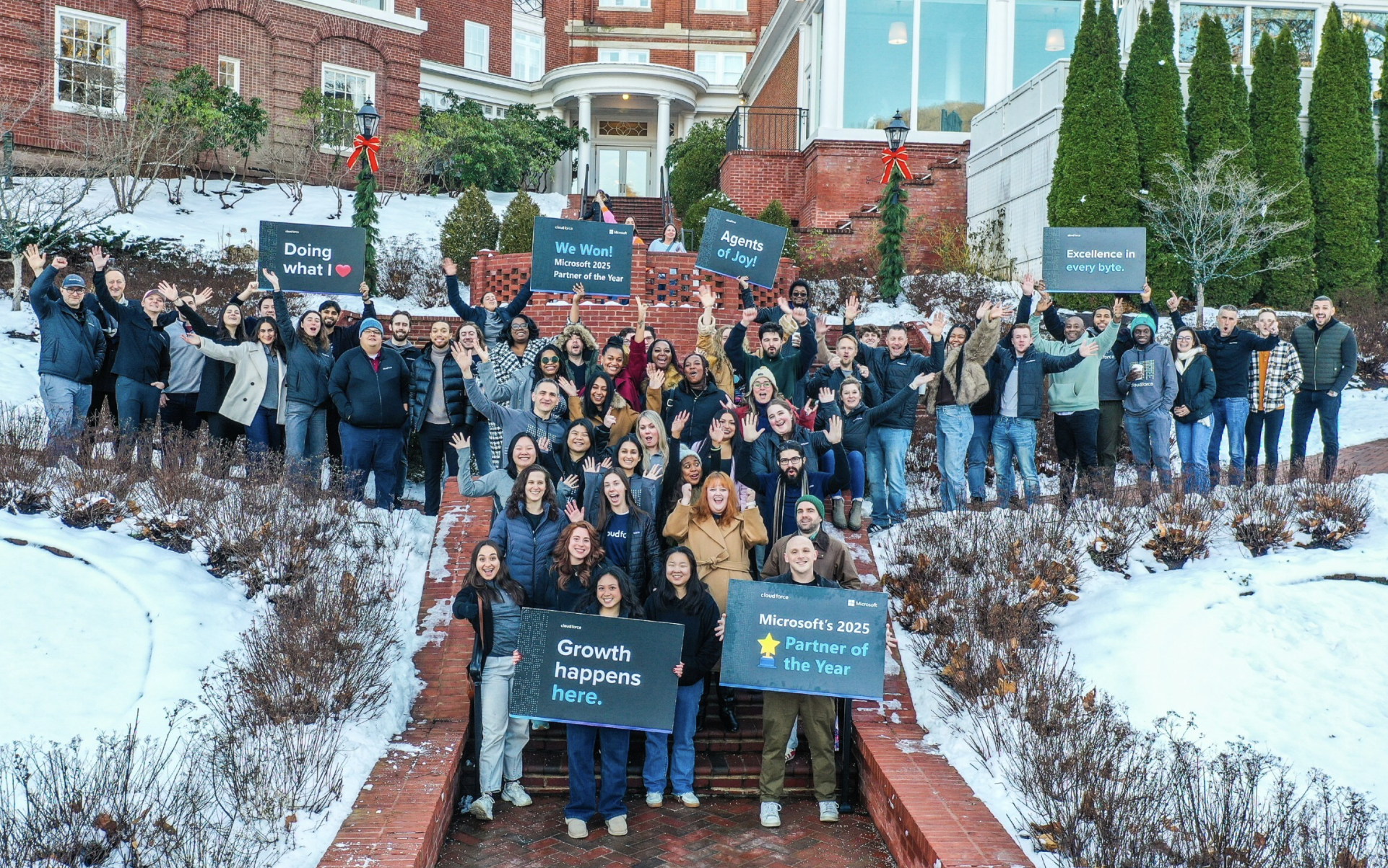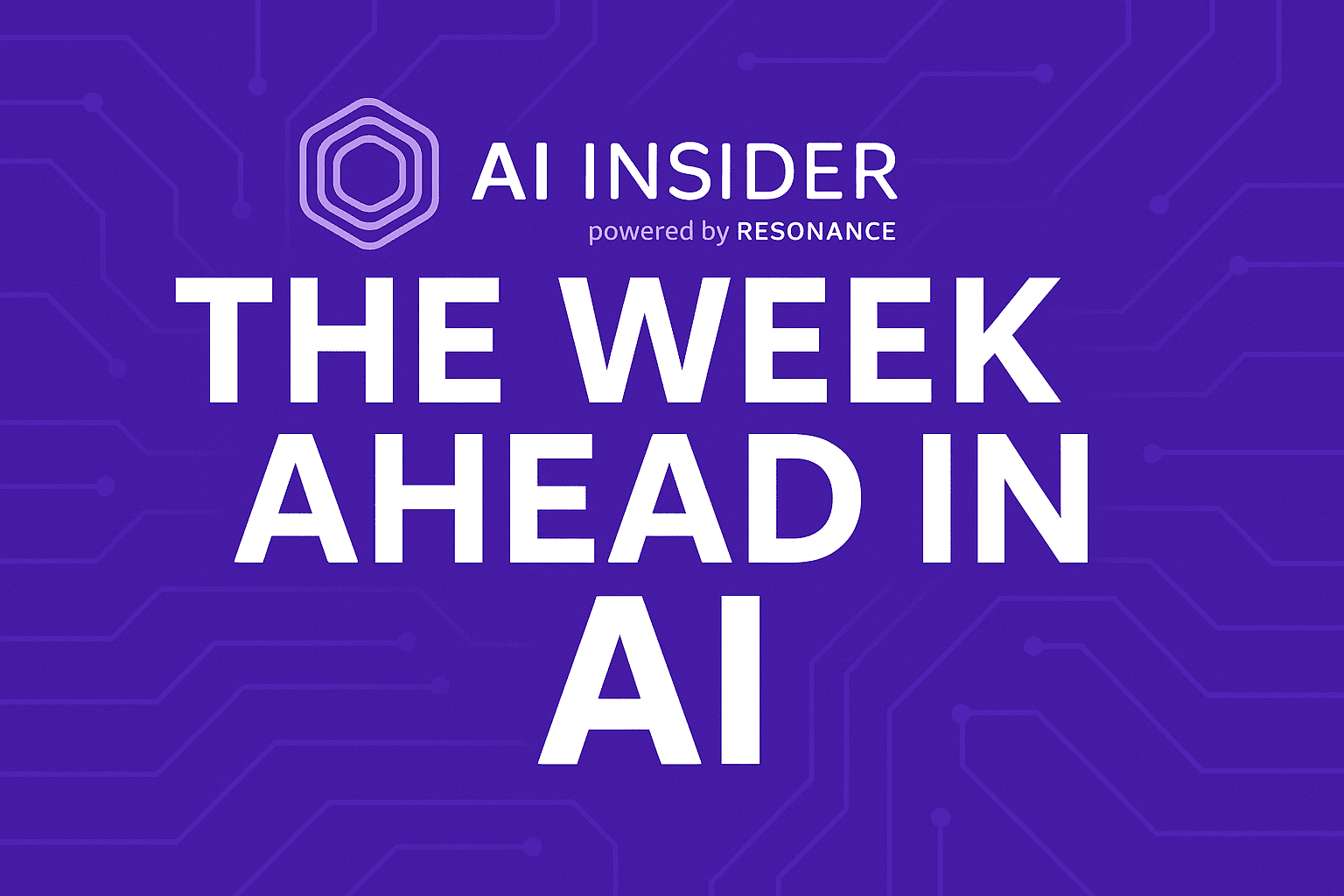The Importance of a CEO in AI Companies
The role of a CEO differs based on a company’s size, culture and structure. In large corporations, CEOs are usually involved in high-level strategic decisions contributing to the company’s overall growth, such as capital allocation and team building for success.
As with other verticals, the CEO plays a pivotal role in shaping the vision and strategy for adopting and governing AI within an organization. They are tasked with outlining the strategic objectives and targets for AI initiatives, ensuring that they are in sync with the company’s overarching mission, values and long-term business strategy. By doing so, the CEO aids in fostering a coherent approach towards AI, aligning it with the broader organizational goals and ensuring that it serves as a catalyst in furthering the company’s strategic agenda. By setting a well-defined strategy for AI, the CEO helps in harnessing the potential of AI to contribute to the organization’s success and growth.
Below, are ten individuals who are doing just that, either as founders/co-founders or have been brought in as they possess a particular skillset required to execute company policy in the age of AI.
Of the ten included, not all are leaders of pure-play AI companies but have now taken an interest in this dynamic technology.
The list, for obvious reasons, is non-exhaustive, and many notable leaders in the AI space have been left out, not intentionally, of course.
1. Sundar Pichai (Google)
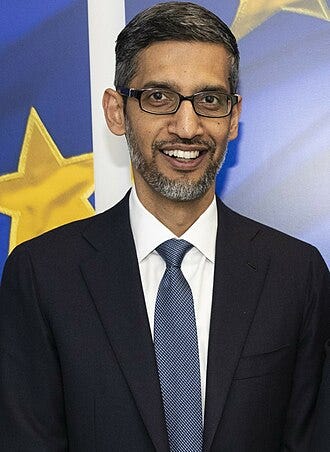
Sundar Pichai is a business executive serving as the CEO of Alphabet Inc. and its subsidiary Google. Pichai started his professional career as a materials engineer, and after a brief period at McKinsey & Co., he moved to Google in 2004. Within Google, he spearheaded product management and innovation for key client software products like Google Chrome, ChromeOS, and Google Drive, and later managed the development of Gmail and Google Maps.
His leadership skills earned him the position of Google’s CEO in 2015. His tenure as CEO began with the establishment of Alphabet Inc. as Google’s holding company, and he joined the Alphabet Board of Directors in 2017. His contributions to the tech industry were recognized by Time magazine, listing him among the 100 most influential people in both 2016 and 2020.
2. Arvind Krishna (IBM)

Arvind Krishna is a business executive and has been the CEO at IBM since 2021. Beginning his tenure at IBM in 1990 at the Thomas J. Watson Research Center, Krishna ascended to the role of Senior Vice President by 2015, overseeing IBM Cloud & Cognitive Software and IBM Research divisions.
3. Eddie Wu (Alibaba)

Eddie Wu has been serving as the CEO of Alibaba and interim director of the company since 2023 and is also a co-founder and member of the Alibaba Partnership. Wu began his journey with Alibaba as a technology director at its inception in 1999, transitioning to various pivotal roles over the years including CTO of Alipay, Business Director and later General Manager of Alimama, and CTO of Taobao.
From 2011, he led Alibaba Group’s search, advertising, and mobile business. He held director and chairman positions at Alibaba Health Information Technology Limited between 2015 and 2021 and served as the special assistant to Alibaba Group’s board chairman from 2014 to 2019.
4. Adam Selipsky (AWS)

CEO of Amazon Web Services (AWS), a widely adopted cloud platform, Adam Selipsky has significantly contributed to evolving AWS from a startup to a multi-billion dollar business, overseeing marketing, sales, and support. Before reassuming a role at AWS in 2021, he served as the President and CEO of Tableau Software, steering the company through its notable acquisition by Salesforce.
5. Debanjan Saha (DataRobot)
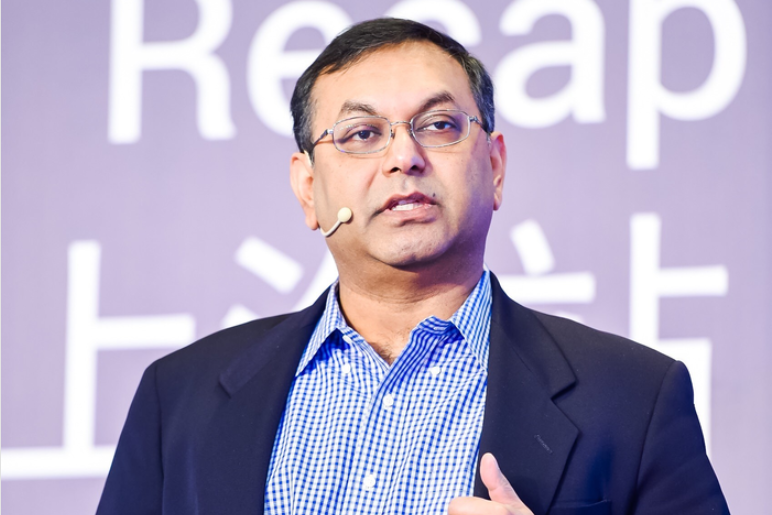
Debanjan Saha is the VEO at DataRobot. Prior to joining the company, Saha was key to the growth of Data Analytics services at Google Cloud (GCP) as VP/GM, handling a wide range of responsibilities from engineering to operations and go-to-market strategies. Under his leadership, GCP Data Analytics launched innovative services like BigQuery Omni and Dataplex, among others, and witnessed a tripling in revenue with notable clients like Walmart and PayPal adopting GCP services for their primary data analytics platform.
Before his tenure at Google, Saha led Database services at AWS, where he notably developed and launched Amazon Aurora, transforming the outlook on mission-critical databases in the cloud. His achievements at AWS, particularly the success of Aurora, led to his recognition as a technology executive of the year in 2019. Earlier in his career, Saha held various leadership roles at IBM, contributing significantly to the development of Storwize, and was a Principal Engineer at Tellium, aiding its transition from a startup to a publicly traded company with a significant IPO.
6. Dou Shen (Baidu)
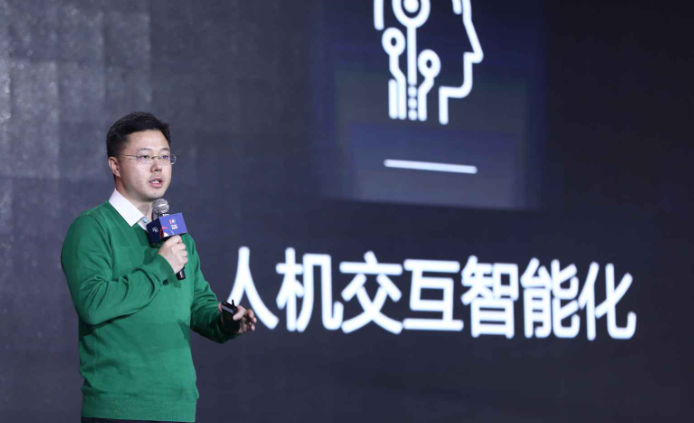
Chief of Baidu AI Cloud, Dou Shen has been serving as the Executive Vice President since 2019. Shen joined Baidu in 2012 and has assumed various management roles within the organization, including positions in web search, display advertising, financial services group, and mobile products. Before Baidu, Shen was part of the adCenter group at Microsoft and co-founded Buzzlabs, a social media monitoring and analysis platform company, which was later sold to IAC-owned CityGrid Media.
7. Satya Nadella (Microsoft)
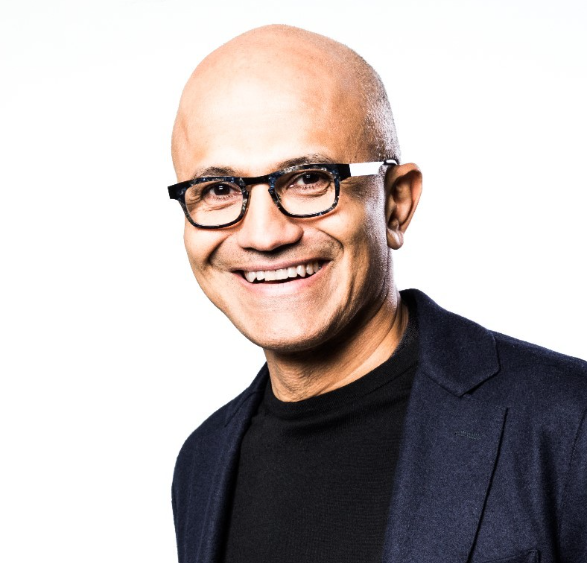
Satya Nadella is a business executive who serves as the executive chairman and CEO of Microsoft, succeeding Steve Ballmer as CEO in 2014 and John W. Thompson as chairman in 2021. Before these roles, he was the executive vice president of Microsoft’s cloud and enterprise group, overseeing the company’s computing platforms.
8. Jensen Huang (NVIDIA)
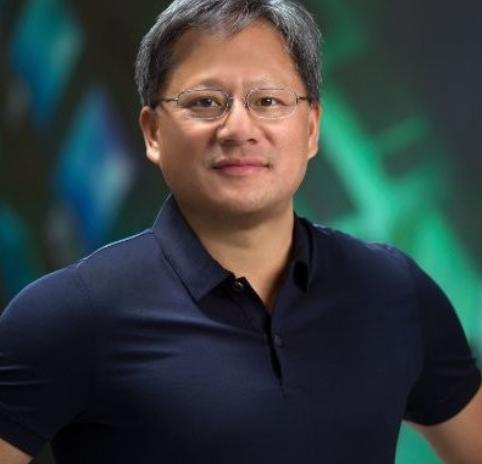
Jensen Huang is a businessman and electrical engineer, co-founding Nvidia Corporation and serving as its president and CEO. He has received various accolades, including being named the best-performing CEO in the world by Harvard Business Review in 2019 and receiving the Robert N. Noyce Award from the Semiconductor Industry Association in 2021. In September 2021, Huang was listed in the Time 100, recognizing the 100 most influential people globally.
9. Elon Musk (Tesla)
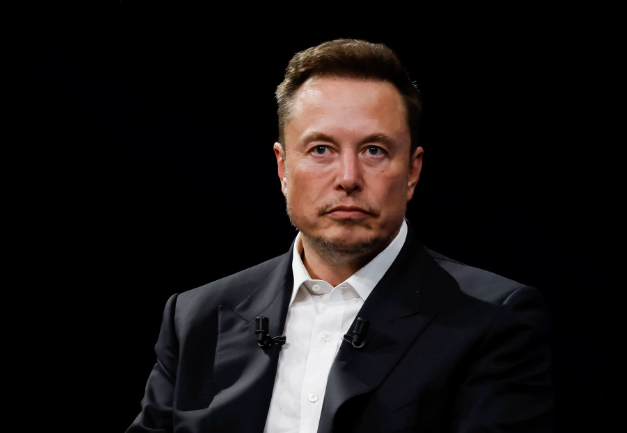
An individual who needs no introduction, Elon Musk is a business magnate and investor known for founding and leading several high-profile technology companies. He serves as the CEO and CTO of SpaceX, CEO and product architect of Tesla, Inc., among other roles across different ventures like The Boring Company, Neuralink, and OpenAI. As of September 2023, he is recognized as the wealthiest individual globally with an estimated net worth ranging between US$241 billion to $261 billion, amassed mainly from his stakes in Tesla and SpaceX.
10. Sam Altman (OpenAI)
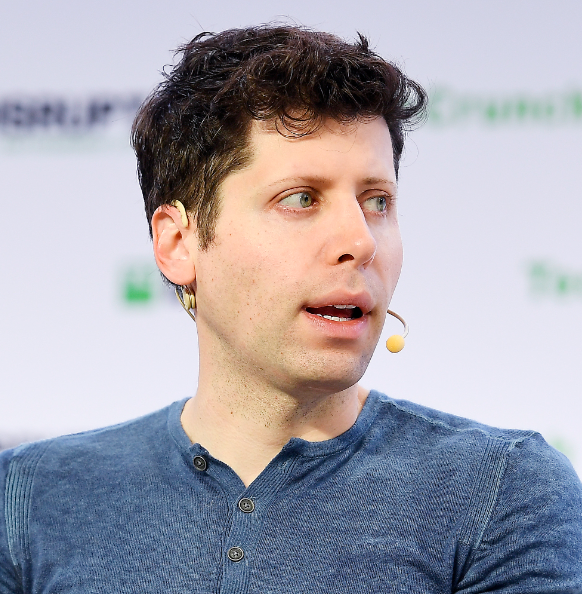
The new kid on the block, Sam Altman is an American entrepreneur, investor and programmer known for co-founding Loopt and holding the position of CEO at OpenAI. He has also served as the president of Y Combinator and briefly as the CEO of Reddit.
In Conclusion
The ten leaders outlined are instrumental in steering significant advancements in the field of AI through their respective organizations. Pichai at Google and Krishna at IBM are well-positioned, given their firms’ extensive resources and established presence in technology sectors, to propel AI initiatives. Wu at Alibaba, Selipsky at AWS, and Saha at DataRobot have showcased an aptitude for navigating complex cloud and data analytics environments, crucial for modern AI applications. Shen’s work at Baidu AI Cloud and Huang’s leadership at Nvidia demonstrate a concerted effort towards better integration of AI in various sectors, fostering a conducive ecosystem for AI growth. Nadella’s tenure at Microsoft has seen the firm making strides in cloud computing, a fundamental aspect of AI technology. Musk and Altman represent entrepreneurial foresight in recognizing and investing in AI’s potential through ventures like OpenAI.
Through different pathways, these leaders are contributing to the AI landscape, shaping its governance, adoption, and technological advancements which, in turn, are central to changing the face of AI in various industries and the broader tech ecosystem.
Featured image: Credit: Lukáš Benda, PlaygroundAI


